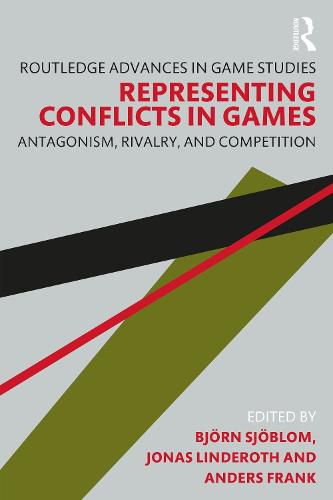Readings Newsletter
Become a Readings Member to make your shopping experience even easier.
Sign in or sign up for free!
You’re not far away from qualifying for FREE standard shipping within Australia
You’ve qualified for FREE standard shipping within Australia
The cart is loading…






This book offers an overview of how conflicts are represented and enacted in games, in a variety of genres and game systems. Games are a cultural form apt at representing real world conflicts, and this edited volume highlights the intrinsic connection between games and conflict through a set of theoretical and empirical studies. It interrogates the nature and use of conflicts as a fundamental aspect of game design, and how a wide variety of conflicts can be represented in digital and analogue games.
The book asks what we can learn from conflicts in games, how our understanding of conflicts change when we turn them into playful objects, and what types of conflicts are still not represented in games. It queries the way games make us think about armed conflict, and how games can help us understand such conflicts in new ways.
Offering a deeper understanding of how games can serve political, pedagogical, or persuasive purposes, this volume will interest scholars and students working in fields such as game studies, media studies, and war studies.
$9.00 standard shipping within Australia
FREE standard shipping within Australia for orders over $100.00
Express & International shipping calculated at checkout
This book offers an overview of how conflicts are represented and enacted in games, in a variety of genres and game systems. Games are a cultural form apt at representing real world conflicts, and this edited volume highlights the intrinsic connection between games and conflict through a set of theoretical and empirical studies. It interrogates the nature and use of conflicts as a fundamental aspect of game design, and how a wide variety of conflicts can be represented in digital and analogue games.
The book asks what we can learn from conflicts in games, how our understanding of conflicts change when we turn them into playful objects, and what types of conflicts are still not represented in games. It queries the way games make us think about armed conflict, and how games can help us understand such conflicts in new ways.
Offering a deeper understanding of how games can serve political, pedagogical, or persuasive purposes, this volume will interest scholars and students working in fields such as game studies, media studies, and war studies.